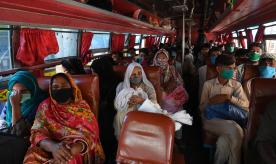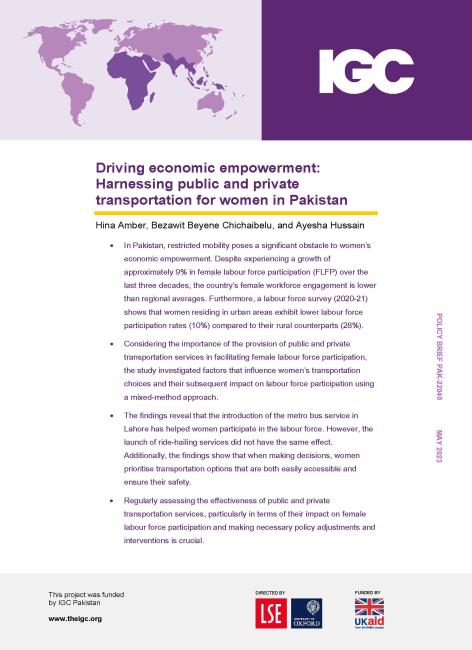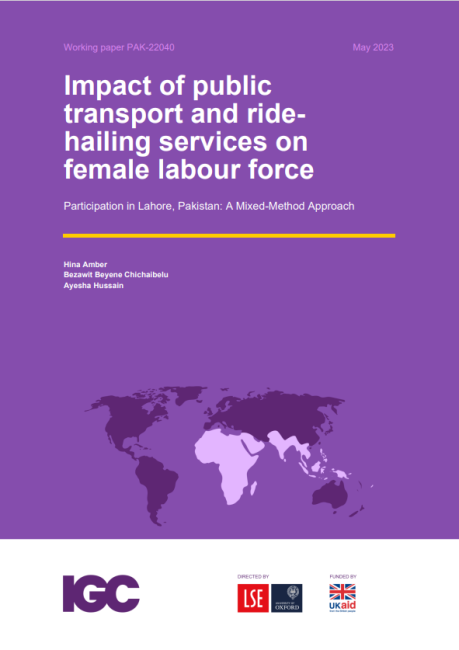Public versus private transportation services and its implications for female employment in Lahore
Inadequate mobility infrastructure in Pakistani cities hinders women's economic participation. To address this challenge, this project Lahore is quantitatively assessing the impact of public and private transportation services, focusing on factors like affordability, accessibility, and safety.
Infrastructure development in cities is pivotal for achieving inclusive growth as it provides direct access to education, work, and other services. However, inadequate mobility infrastructure is often considered a serious problem that exacerbates inequalities by reducing opportunities for women to realise their full potential. Pakistan ranks among the worst performers globally regarding gender equality, placing the country in the bottom bracket of nations in the Global Gender Gap Report (2021). The country slipped from 112th (2006) to 152nd (2021) in economic participation and opportunities. A crucial factor that can ensure women equal participation in the labour force is access to opportunities that come with ease in mobility.
Three considerations for addressing women's mobility constraints include affordability, accessibility, and safety. Public transport provides an affordable option for women to commute. However, research by the International Growth Centre (2017) shows that in Pakistan, women deal with various challenges concerning safety, harassment, and worries about their social reputation while travelling by public transport. In contrast, private transportation services provide accessibility and safety but are not affordable.
To solve the urban mobility challenge of women commuters, coordination is necessary between public and private sector service providers to increase the range of mobility choices. Using a synthetic control method, the project will provide a quantitative assessment of public and private transportation services provision on female labour force participation in Lahore, Pakistan. In order to assess the impact of public transportation services, the project uses a large public infrastructure project, i.e. 'Lahore metro', that started its operation in 2013. The digital platform-based transportation service 'Uber' is chosen as the private service provider. Additionally, using a qualitative approach, the project also aims to identify factors associated with different modes of transportation that hinder women’s access to economic opportunities.




